The complete guide to home viewing
Get Screen Gab for everything about the TV shows and streaming movies everyone’s talking about.
You may occasionally receive promotional content from the Los Angeles Times.
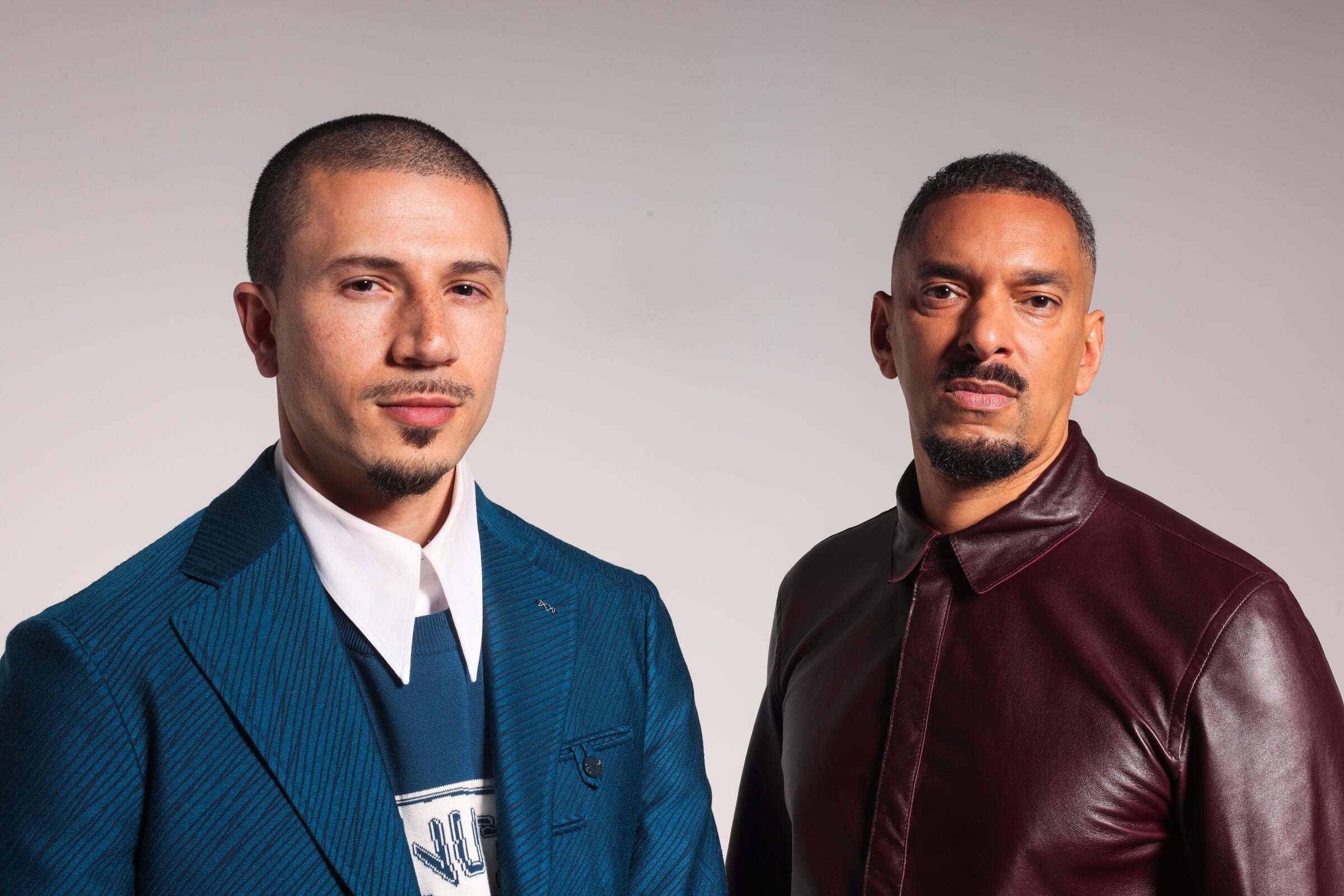
This article contains spoilers for the final two episodes of Season 1 of “The Changeling.”
The curtain has come down on the first season of Apple TV+’s “The Changeling,” a sweeping eight-episode adaptation of Victor LaValle’s 2017 fairy tale horror novel. But oh, the questions that linger, especially this one: What did it all mean?
A brief recap: The show tells the story of Apollo (LaKeith Stanfield), a secondhand bookseller, and his wife, Emma (Clark Backo), a librarian who is convinced that their child is a changeling, the creature that a demon leaves behind after it kidnaps a human infant. Also in the picture are Apollo’s Ugandan mother, Lillian (played at different ages by Alexis Louder and Adina Porter), and, at times, his father, Brian (Jared Abrahamson), a New York police officer. The show is set in Manhattan but also on mysterious North Brother Island, rural Uganda and a theatrical otherworld where AIDS is a character of its own.
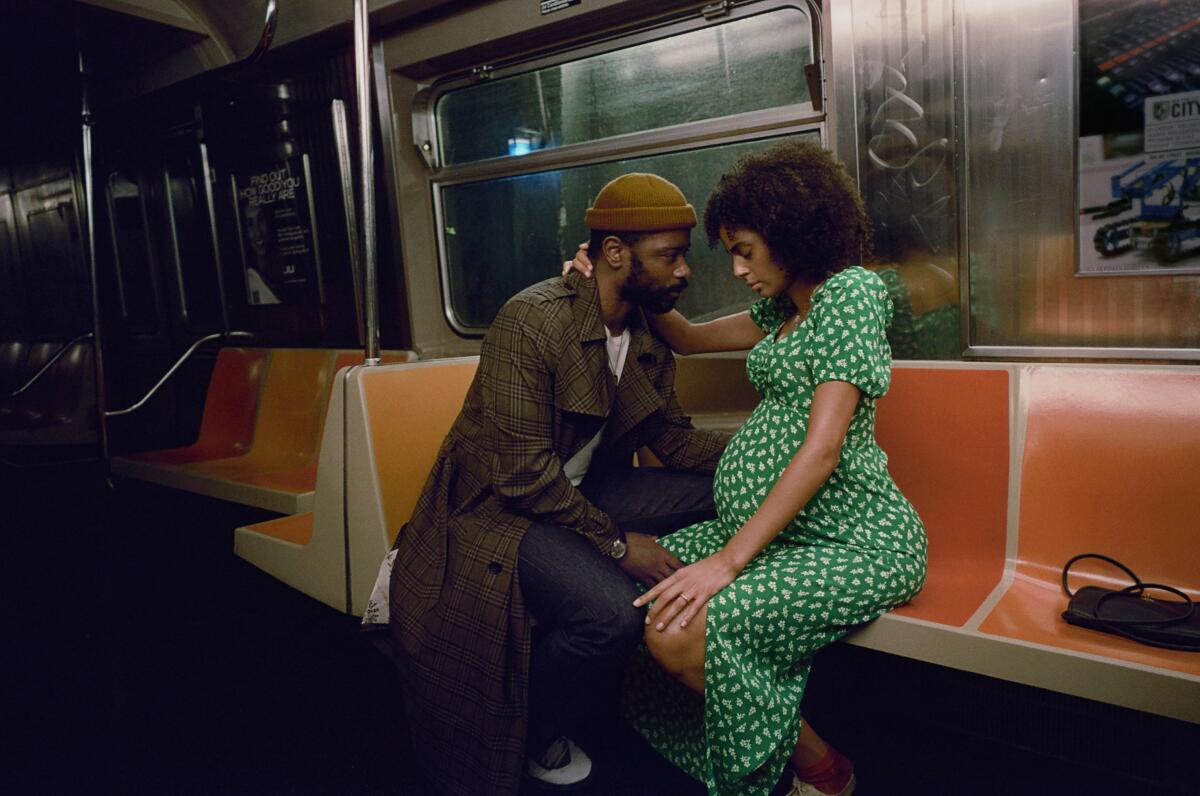
The Los Angeles Times recently spoke with the series’ creator and showrunner, Kelly Marcel, and directors Michael Francis Williams (Episode 7) and Solvan “Slick” Naim (Episode 8). The interviews have been condensed from two conversations: With Marcel, via Zoom from her home in New Orleans, and with Williams and Naim at Apple TV+’s headquarters in Culver City. It has been edited for clarity and length.
Let me get to the point. What is the show about?
Kelly Marcel: The show works on many different levels. It’s a fairy tale and a horror story and a parenthood fable. But actually, is it really about postpartum? Is it about women not being believed? Is it about the struggles of people finding healthcare in America? It felt important to me to consider women’s health after birth, particularly as that was something I had just been dealing with.
Michael Francis Williams: If you’re lucky, your parents are your superhero: faultless, blameless, all powerful. But when you get to be their age, you’re like: They didn’t know anything. [Laughs] They were flawed and figuring it out. The show deals with how mythologies and fairy tales used to be lessons rather than Disney confections. The old fairy tales that Victor pulled from were super scary. You’d tell kids these terrifying metaphors for real life things. That’s what the show does.
Solvan “Slick” Naim: Coming from an immigrant family — my mother came from Algeria to work in New York City — in America there are certain ways you’re supposed to raise children and what’s expected versus how you and your partner were raised as children. You have to find a medium that works for the both of you. But sometimes it’s impossible. It’s a work in progress. The contradiction there [between Lillian and Brian] was well written and executed in the show. You have this fantastical adult fairy tale but it’s also dealing with grounded, human issues. That drew me to the script.
LaKeith Stanfield plays a new father who goes searching for his wife in this supernatural tale on Apple TV+ that’s based on the book by Victor LaValle.
Episode 7, which focuses on Lillian and is set at the notorious Elk Hotel, was dramatically and visually very different from the others. What inspired you?
Williams: As a Black director, we don’t often get a chance to see an older woman have a spotlight like this in a premium Black drama. My episode was written to allow for a visual telling of that tale. It’s one woman [Adina Porter] in a room talking to a tape player. As a director, I get to play with so many ways of putting the audience in her emotional truth. I begged Kelly. I was like, “Please, can I do it?”
Marcel: We had to put a lot of money into this show. We always knew there was going to be an episode that would suffer financially. Initially, it came from being handcuffed like, what can we make in seven days on one set?
Williams: It’s set during a very specific time and place in New York. We wanted things that put you into the time and place: a Times Square street, the Broadway-ness, the AIDS epidemic — all of these are in the air in New York. We wanted things which were personal to Lillian and true to the city, and have her use that to try and exorcise the demons in her, which she does. In her mind fracturing, she tries to work out a way to forgive herself, to shift this burden off her shoulders back into the past where it belongs, and walk out of the episode to be able to carry on as a mother.
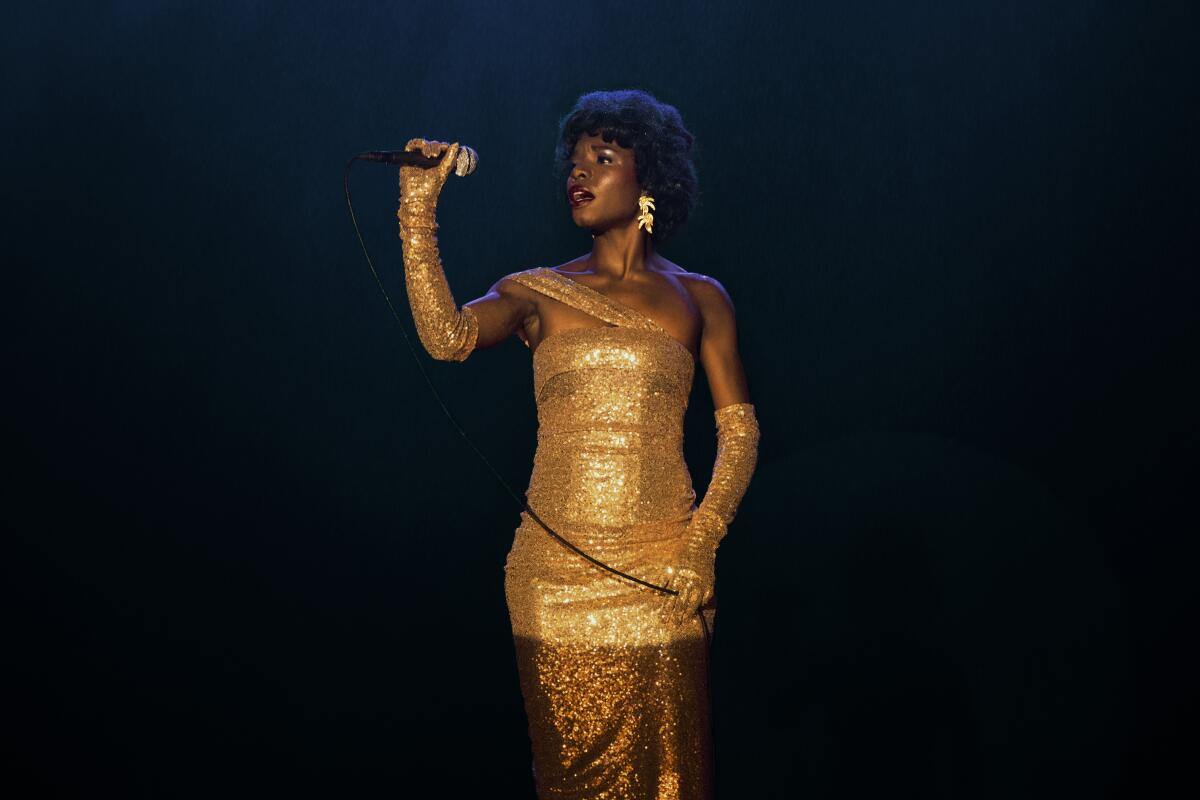
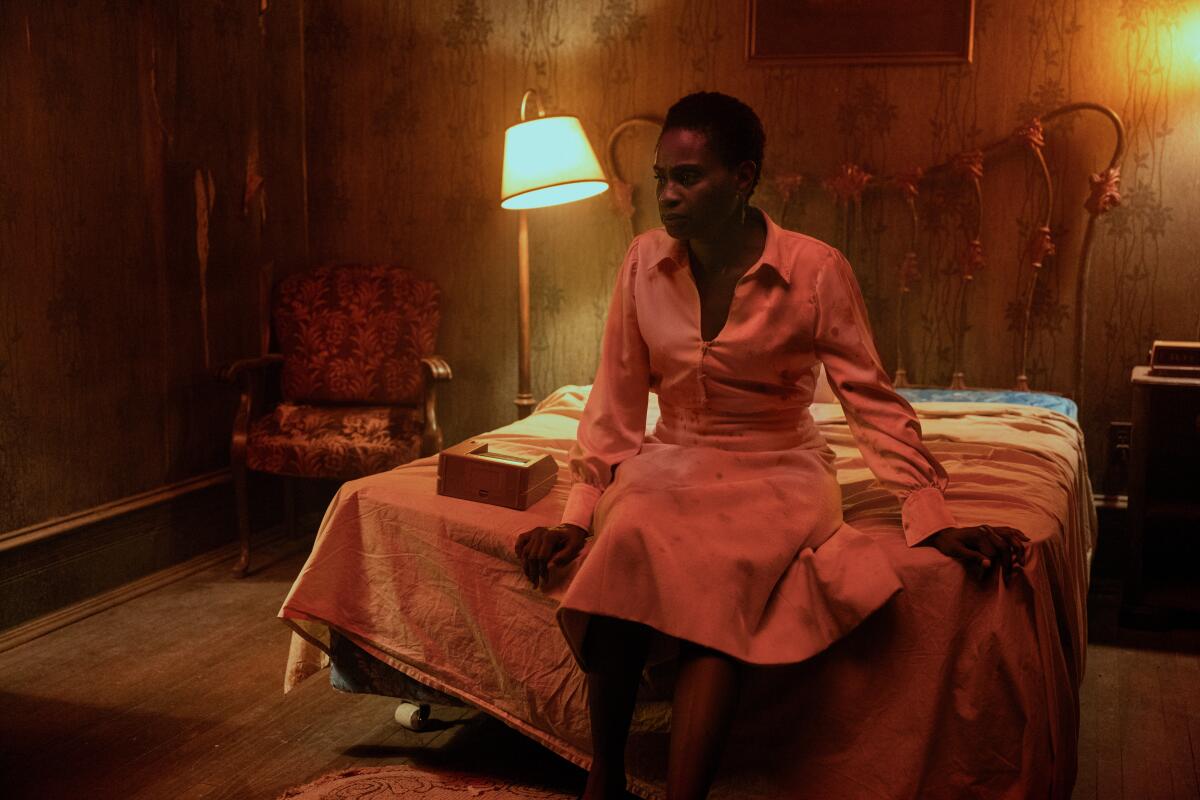
Marcel: I wrote it like this monologue, which it kind of is. I gave it to Victor and said, “Have I gone insane?” Having Apple say we’re going to let you make this completely bonkers piece of television was amazing. I met Michael over Zoom and immediately he was like, “OK so the patient zero [of the AIDS epidemic], I want to put him in a milk bath on a theater stage with spotlights.” In the script, she’s in a room and she’s singing to him at the side of the bed and he dies while she’s singing. Michael’s like, “Yes and she’s going to wear this gold dress.”
Williams: I’m an in-camera guy rather than a heavy [visual effects] guy. I like things that an actor can feel for real. There’s definitely the language of theater there — walls sliding back and all sorts of tricks and games — but I wanted something that put you in the room with the actor and not something that looked too polished. I wanted to tell the story of a woman’s mind falling apart through the course of the one dark night of the soul. I wanted something immersive.
Marcel: Also, it’s an homage to “Angels in America.” I grew up in London, and all of my experiences of going into the theater are religious in some way. I find it more inspiring, sitting in those old seats and watching people do things live. That’s where I go to fill my creative soul.
On the other hand, in the final episode we got fireballs, action and a monstrous eyeball.
Naim: It’s the finale so the series is coming to this crescendo. Making it action-based while dealing with all the emotions and being able to give closure to those and keeping with the thriller-horror part of it — it was a nice blend of genres, and that was exciting to me.
When you think of “Jaws,” there aren’t many times where you see the shark. It’s just about hearing the shark, seeing the fin, seeing subtle pieces where the horror is intensified because you don’t see this huge creature. As a director, this episode was teetering on how we are going to keep that edge-of-your-seat feeling while not showing too much. It’s not a show about monsters. I wanted to make sure that the suspense held.
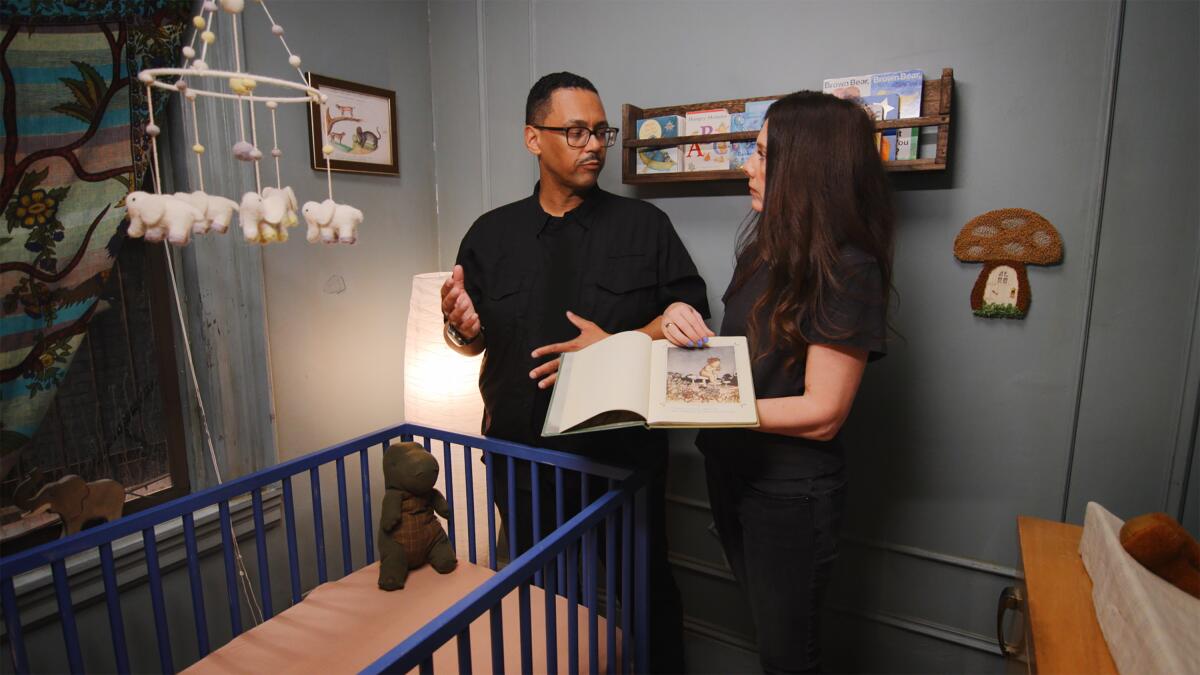
Marcel: In every episode where we feature water, it’s been interesting to me that nobody’s noticed the creature is there. As we go on the boat to North Brother Island, you’ll see something breach the water. It’s so subtle. We’ve made it a show that you feel as well as watch. But also one that you have to watch. You can’t be on your phone or you’ll miss all the little things we’ve planted throughout.
Naim: We shot in Toronto, at night. I’m talking nocturnal. We had to train our brains to sleep during the day and be up at night. As soon as that sun comes out, you’re done. That was challenging, especially when you have two kids at home. But the crew would talk about ways to get the most efficient sleep.
So much of the show is about parenthood, both the perils and the rewards. How did being a parent, or memories of your own parents, inform how you handled the material?
Williams: I’m not a parent, but I am adopted. As for things that showed up in my episode, as a queer man that’s in my DNA. It informs my aesthetic choices. I’m from the U.K., and the immigrant story, and what being in America means to Lillian, that negotiation, I poured a bit of myself into that.
Naim: I have two kids, 2 and 3 years old. When I was reading the scripts, I could relate to it on a lot of levels: seeing my wife go through postpartum, having arguments on how to raise children, how you can keep a relationship stable when you add these elements of children. Being able to mitigate issues with sleeping or feeding — I could go into a whole 100-page novel on raising children.
Marcel: I think horror speaks to our inner demons and inner trauma. Particularly with the seventh episode, I was able to exorcise so much, and also understand so much about my own mum and how much I may have blamed my parents when parenting is just so hard, particularly being a single mum.
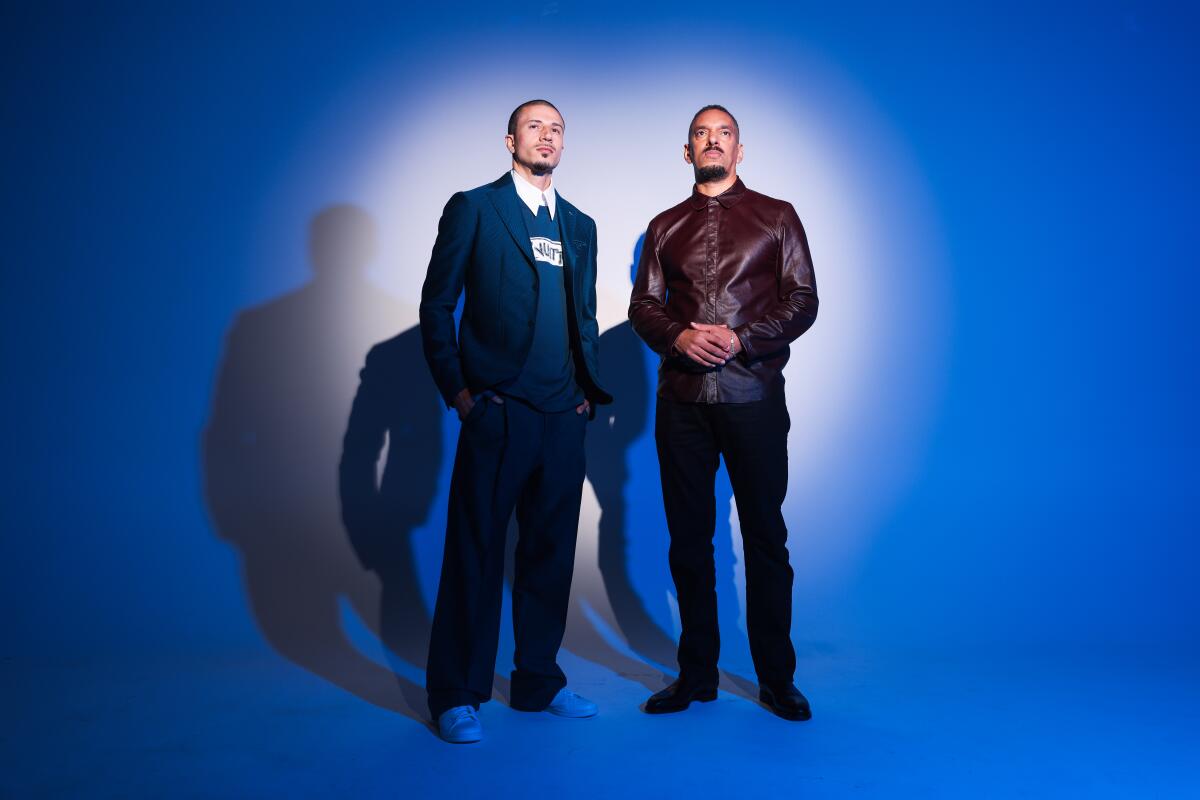
What are your Halloween plans?
Marcel: I live in New Orleans, and there is some spooky stuff that goes on here. This place is definitely haunted. You feel the ghosts.
Williams: You know Prince in the “Partyman” video, where he’s half Batman and half the Joker? I swear one year, I will be Prince from that video.
Naim: I wasn’t really a Halloween person. I was the guy who would grab a Jason mask and just get some candy. But Halloween is huge out here, way bigger than in New York. They go crazy out here.
The complete guide to home viewing
Get Screen Gab for everything about the TV shows and streaming movies everyone’s talking about.
You may occasionally receive promotional content from the Los Angeles Times.